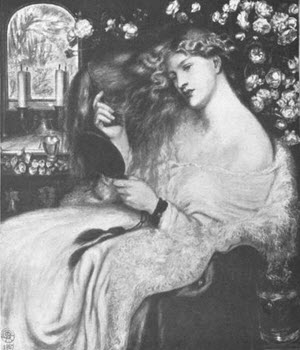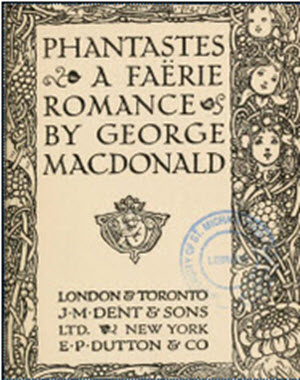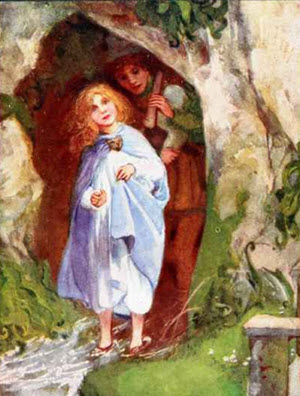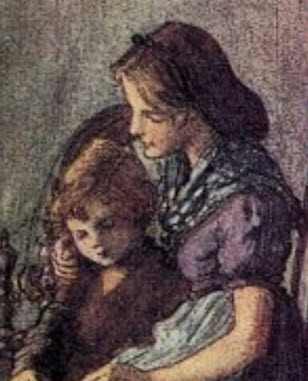
George MacDonald Biography
George MacDonald (10 December 1824 – 18 September 1905) was a British writer of Scottish descent. He produced a large body of work including historical romances, poetry and essays, but he is best remembered for his influential works of fantasy.
Originally trained as a minister, McDonald was unsuccessful in his first career because his views on universal salvation (the belief that all sinful souls will eventually be saved and that there is no eternal damnation) conflicted with established Protestant doctrine. As a result he was unable to find steady employment as a church minister, and so began teaching at the University of London and embarked on his writing career. In later years, he and his wife settled on the Italian Riviera where most of his major works were written.
He is best known for his landmark books of fantasy such as Lilith, Phantastes and The Princess and the Goblin. "
MacDonald's fiction incorporates his views on God, the meaning of sin, free will, and redemption through the use of symbolism and allegory. His writing is never preachy, yet conveys a deep meaning. For example, the children's fantasy novel "At the Back of the North Wind", touches on the question of evil in the world, and advocates MacDonald's belief that even things which are apparently bad, serve a higher good purpose, such as when the title Wind of the novel is commanded to sink a ship in a storm.
MacDonald and his family were friends with many of the leading authors of his day, and he was a mentor to C.S. Lewis, author of Alice in Wonderland. Lewis was unsure whether his story was fit for publication, and tested it on the MacDonald children; their enthusiastic reaction convinced him that Alice should be published. If not for his relationship with MacDonald, Alice in Wonderland would probably never have been printed.
In addition to this direct influence on the work of a fellow fantasy writer, MacDonald shaped the writing style and sensibilities of many other authors which came after him. He is credited with founding the modern fantasy genre. Major authors such as Lewis Carroll, C.S. Lewis, G.K. Chesterton and J.R.R. Tolkien acknowledged MacDonald as a major influence on their writing. Without George MacDonald, it is likely that classics such as The Lord of the Rings would never have been written.
MacDonald's body of work was prodigious and though very popular in is day and well received by critics, it has been largely neglected and unread in recent years, with the exception of his novels Lilith and Phantastes, which have enjoyed a revival in their popularity.
Lilith
Lilith is a dark allegory about sin and the power of redemption. This is a work of great power and imagination, featuring a journey through a nightmarish world, Strange characters, and hidden meanings. Even if you don't share MacDonald's views on salvation, this story will stay with you long after you have read it. On of George MacDonald's greatest works, and one which has stood the test of time and changing literary tastes. Tolkien and others cited it as a major influence.
Phantastes
At once a love story, fantasy novel, and allegory, Phantastes (a title reminiscent both of fantasy and phantom) tells the story of a young man's journey through a fairy land and through parallel universes. Originally published in 1858, it was republished in 1970 and has enjoyed renewed modern popularity.
Princess and the Goblin
The Princess and the Goblin is a children's fantasy novel by George MacDonald, and a sequel to the Princess and the Curdie. One one level, it is simply a fairy tale, and a story of adventure and strange creatures. But like all of MacDonald's works, it has a deeper symbolical meaning, dealing with virtue and courage.





